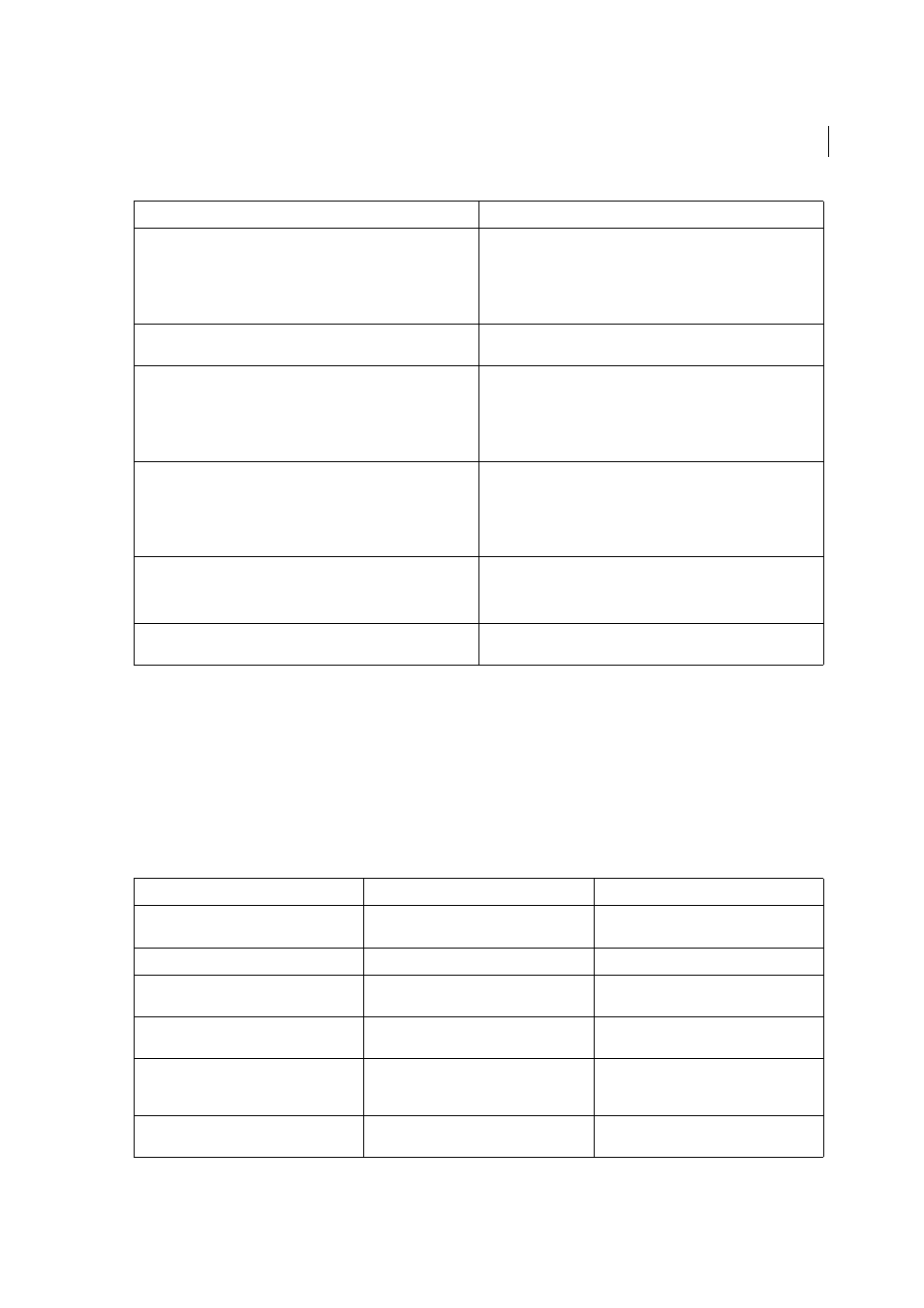Regular expressions – Adobe Dreamweaver CC 2015 User Manual
Page 366

359
Coding
Last updated 6/3/2015
Regular expressions
Regular expressions are patterns that describe character combinations in text. Use them in your code searches to help
describe concepts such as lines that begin with “var” and attribute values that contain a number.
The following table lists the special characters in regular expressions, their meanings, and usage examples. To search
for text containing one of the special characters in the table, escape the special character by preceding it with a
backslash. For example, to search for the actual asterisk in the phrase some conditions apply*, your search pattern might
look like this: apply\*. If you don’t escape the asterisk, you’ll find all the occurrences of “apply” (as well as any of “appl”,
“applyy”, and “applyyy”), not just the ones followed by an asterisk.
Attributes can’t be minimized; for example,
the correct form is
This affects the following attributes: checked, compact, declare, defer,
disabled, ismap, multiple, noresize, noshade, nowrap, readonly, and
selected.
Inserts full attribute-value pairs in the code that it generates, and
when cleaning up XHTML.
Note: If an HTML browser does not support HTML 4, it might fail to
interpret these Boolean attributes when they appear in their full form.
All attribute values must be surrounded by quotation marks.
Places quotation marks around attribute values in the code that it
generates, and when cleaning up XHTML.
The following elements must have an id attribute as well as a name
attribute: a, applet, form, frame, iframe, img, and map. For example, name="intro">Introduction is not valid; the correct form is
Sets the name and id attributes to the same value, whenever the name
attribute is set by a Property inspector, in the code that Dreamweaver
generates, and when cleaning up XHTML.
For attributes with values of an enumerated type, the values must be
lowercase.
An enumerated type value is a value from a specified list of allowed
values; for example, the align attribute has the following allowed
values: center, justify, left, and right.
Forces enumerated type values to be lowercase in the code that it
generates, and when cleaning up XHTML.
All script and style elements must have a type attribute.
(The type attribute of the script element has been required since
HTML 4, when the language attribute was deprecated.)
Sets the type and language attributes in script elements, and the type
attribute in style elements, in the code that it generates and when
cleaning up XHTML.
All img and area elements must have an alt attribute.
Sets these attributes in the code that it generates and, when cleaning
up XHTML, reports missing alt attributes.
Character
Matches
Example
^
Beginning of input or line.
^T matches “T” in “This good earth” but not in
“Uncle Tom’s Cabin”
$
End of input or line.
h$ matches “h” in “teach” but not in “teacher”
*
The preceding character 0 or more times.
um* matches “um” in “rum”, “umm” in
“yummy”, and “u” in “huge”
+
The preceding character 1 or more times.
um+ matches “um” in “rum” and “umm” in
“yummy” but nothing in “huge”
?
The preceding character at most once (that is,
indicates that the preceding character is
optional).
st?on matches “son” in “Johnson” and “ston” in
“Johnston” but nothing in “Appleton” or
“tension”
.
Any single character except newline.
.an matches “ran” and “can” in the phrase
“bran muffins can be tasty”
XHTML requirement
Actions Dreamweaver performs
